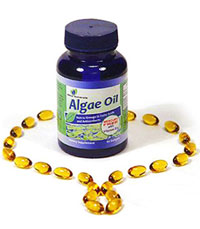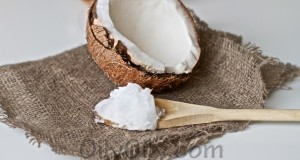 Algae are tiny non-flowering plant-like organisms in the water that make energy from the sunlight just as plants on the land do. However, they lack features of normal plants such as leaves, roots and stems. Algae have three main components that make them a nutritious part of our diet: chlorophyll, omega 3 fats such as EPA and DHA and minerals such as iodine.
Algae are tiny non-flowering plant-like organisms in the water that make energy from the sunlight just as plants on the land do. However, they lack features of normal plants such as leaves, roots and stems. Algae have three main components that make them a nutritious part of our diet: chlorophyll, omega 3 fats such as EPA and DHA and minerals such as iodine.
Algae are important foods in many nations of the world. The Chinese include more than 70 species of algae in their food and the Japanese, over 20 species. They are used as salad ingredients and vegetables in many countries. Oils from some of the algae contain high levels of unsaturated fatty acids and essential omega 3 fatty acids. Algae oil supplements are now available that are considered valuable sources of omega 3 fatty acids.
Docosahexaenoic acid (DHA) and Eicosapentaenoic acid (EPA) are always thought to be components of fish oil, but in fact they originate in the algae. Fish consume the microalgae and store the DHA and EPA in their tissues. Most fish oil products also contain more EPA than DHA. By taking algae oil supplements, you get the DHA and EPA directly without it having been subjected to any conversion process. Thus, having an algae oil supplement is one of the very effective Omega 3 sources for vegetarians. Moreover, fish accumulate a lot of contaminants such as mercury and certain other chemicals from the water and it is feared that some fish oil supplements may not be as pure as they are required to be.
Benefits of algae oil supplements
Most algae oil supplements are obtained under highly controlled laboratory conditions.
The omega 6/omega 3 ratio should be an ideal 1:1. However, in today’s diet the ratio is about 20:1. Thus consumption of essential fatty acids from algae can serve to improve this ratio. The health benefits from a higher intake of algae oil omega 3 fatty acids include higher immunity, mood enhancement, better neurotransmission, improvement of memory and concentration, increased insulin sensitivity, better functioning of the central nervous system, etc., among others.
Scientific studies have proved that the delivery of DHA by both cooked fish and an algae oil supplement are equivalent and well tolerated. Data indicate that consumption of 1 to 2 grams of algae oil supplements serve to elevate levels of both DHA and EPA in the blood. Algae oil DHA lowers triglyceride levels, increases HDL, works as an anti-inflammatory agent, and lowers hypertension.
Algae Oil Supplement Dosage
Many algae oil supplements have a lower serving size when compared to fish oil supplements. The difference is attributed to the fact that the algae oil DHA is more bioavailable than its fish oil counterpart.
Most algae oil supplement manufacturers recommend an intake of 200 to 300 mg of algae oil omega 3 per day. This applies to those individuals who have a balanced intake of fat from their food. However, for optimal results and maximum health benefits, it is recommended that an individual consumes between 1000 mg and 2000 mg per day. It can be had in two doses along with food.
A person who is on other blood thinning medications should consult a medical specialist before opting to have algae oil supplements.
It is recommended that pregnant women, nursing mothers, and children seek advice from a medical specialist before taking algae oil supplements. Some studies have indicated that 600 mg of algae oil DHA given to children improved reading skills.
 Oilypedia.com – Benefits And Uses Of Supplemental and Essential Oils
Oilypedia.com – Benefits And Uses Of Supplemental and Essential Oils 


